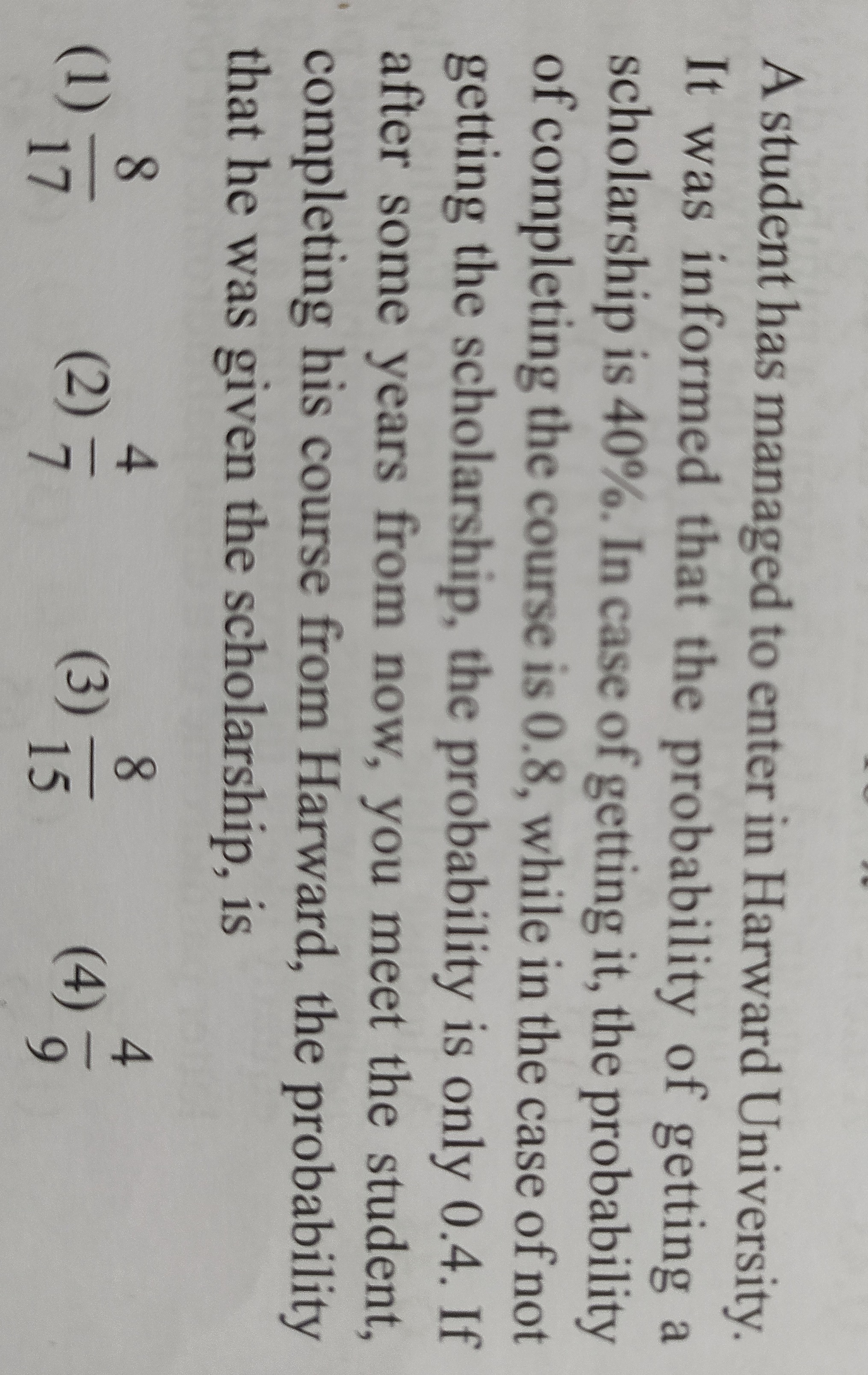Question
Question: A student has managed to enter in Harward University. It was informed that the probability of gettin...
A student has managed to enter in Harward University. It was informed that the probability of getting a scholarship is 40%. In case of getting it, the probability of completing the course is 0.8, while in the case of not getting the scholarship, the probability is only 0.4. If after some years from now, you meet the student, completing his course from Harward, the probability that he was given the scholarship, is

178
74
158
94
74
Solution
Let S be the event that the student gets a scholarship, and S′ be the event that the student does not get a scholarship.
Let C be the event that the student completes the course.
We are given:
P(S)=0.4
P(S′)=1−P(S)=0.6
P(C∣S)=0.8
P(C∣S′)=0.4
We want to find P(S∣C).
By Bayes' theorem:
P(S∣C)=P(C)P(C∣S)×P(S)
We find P(C) using the law of total probability:
P(C)=P(C∣S)×P(S)+P(C∣S′)×P(S′)
P(C)=(0.8)(0.4)+(0.4)(0.6)=0.32+0.24=0.56
Now, we substitute into Bayes' theorem:
P(S∣C)=0.56(0.8)(0.4)=0.560.32=5632=74
Therefore, the probability that the student was given the scholarship, given that he completed the course, is 74.
